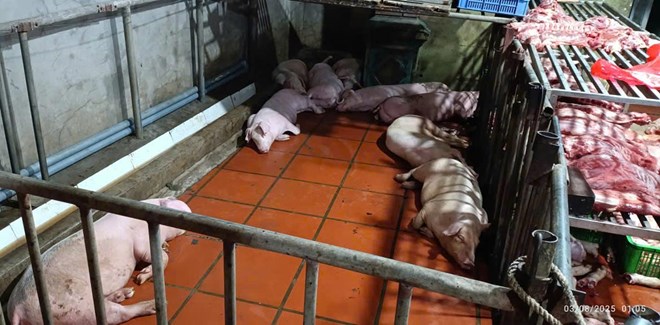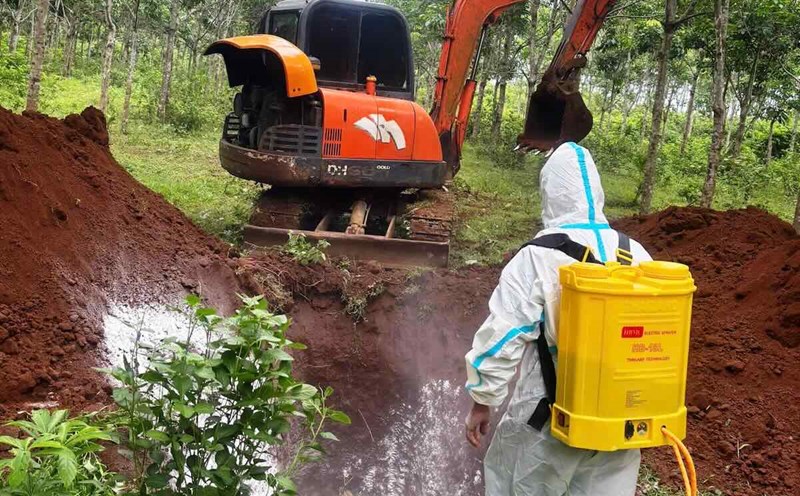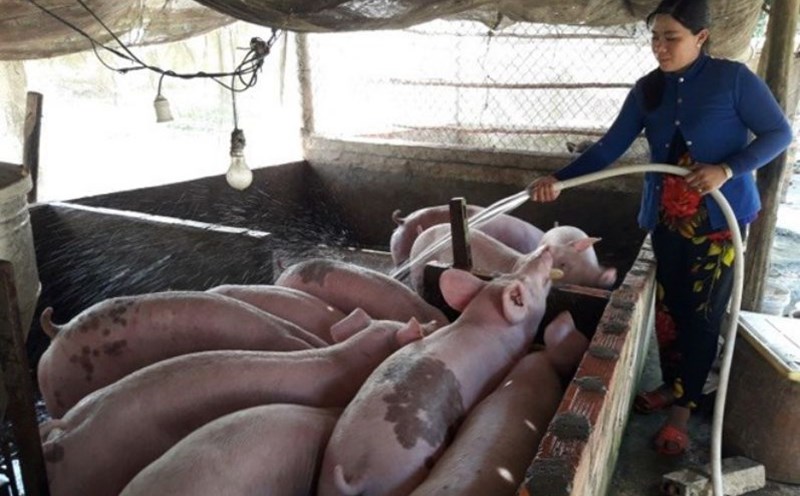People are cautious when choosing to buy pork
At major traditional markets in Hung Yen province such as Pho Hien market (Pho Hien ward), Dau market (Hong Chau ward), the purchasing power of pork has tended to decrease in recent days. The cause comes from people's concerns about information about African swine fever appearing in many localities in the province.
On the morning of August 13, at Pho Hien market, people were cautious when buying pork, many people asked for details about the origin of the meat before buying. Ms. Nguyen Thi Phuong, a long-time trader at the market, said: "Since the beginning of the week, the amount of meat I have sold has decreased significantly. Buyers ask very carefully about the origin of the meat, then choose to buy chicken, fish or shrimp".
At Dau market, the situation is similar. Some traders said they have to reduce their daily imports to avoid unsold goods, while many customers have switched to buying alternative foods such as poultry, fish and seafood.
Although all pork products sold have been quarantined and have a clear origin, the concern is still making Hung Yen consumers cautious. Some people only choose to buy meat at clean food stores or supermarket chains with food safety and hygiene certificates.
Ms. Tran Thi Hoa - a customer choosing meat at Pho Hien market shared: "I still eat pork normally, but now I have to choose more carefully. I prioritize stalls with clear quarantine markings and fresh meat. However, my family has also switched to more chicken for peace of mind.
Similarly, Mr. Pham Van Hung (Hong Chau ward) said: "Hearing the news of an epidemic, I was a bit worried, so I haven't bought pork this week. The whole family switched to eating fish and eggs. Only buy it back when the situation is better.

Hung Yen urgently strengthens control
According to information from the Department of Animal Husbandry and Veterinary Medicine (Department of Agriculture and Environment of Hung Yen province), African swine fever is currently having complicated developments. As of early August, the whole province has recorded a total of 875 pigs infected with disease, dead or destroyed, with a total weight of up to 38,625 kg.
On August 8 alone, the epidemic continued to be detected in 13 livestock households in 13 villages and 6 communes. During the day, 149 pigs (equivalent to 9,011 kg) were destroyed to prevent the spread of the disease to the community.
In that situation, working groups of the Department of Agriculture and Environment coordinated with the Department of Animal Husbandry and Veterinary Medicine to continuously inspect and instruct localities to strictly implement the monitoring process and detect outbreaks early. Propaganda work on barn cleaning, controlling food and drinking water sources and reporting when there are signs of abnormality is being vigorously implemented.
In particular, the province strengthens control of the transportation, slaughter and trading of pigs and pig products throughout the area. All pork products on the market must have a valid animal quarantine certificate.
In the context of the epidemic without a vaccine for treatment, timely prevention and strict control are still key solutions. Authorities and people need to coordinate closely to protect the local livestock industry, ensure food safety and stabilize the market.












